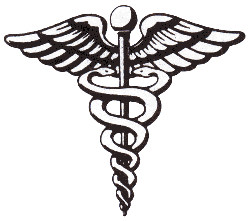Social Healthcare Reform – The Advantages and Disadvantages of a President’s Dream
Many people would argue that you can judge a civilized society by its citizens freedom to access quality healthcare. However, there is a world of difference between the freedom to access healthcare and free healthcare.
 The National Health Service in the United Kingdom is often hailed as an example of social medicine working in action. But healthcare in the United Kingdom is far from free. Treatment on the NHS is free at the point of delivery (most of the time) but it is not FREE. A sizeable chunk of the UK society’s pay packet goes towards funding the NHS, and whilst that may provide a level of healthcare free at the point of delivery, there is certainly an extremely limited freedom of choice.
The National Health Service in the United Kingdom is often hailed as an example of social medicine working in action. But healthcare in the United Kingdom is far from free. Treatment on the NHS is free at the point of delivery (most of the time) but it is not FREE. A sizeable chunk of the UK society’s pay packet goes towards funding the NHS, and whilst that may provide a level of healthcare free at the point of delivery, there is certainly an extremely limited freedom of choice.
The National Heath Service is the United Kingdoms biggest employer, which is just one way to demonstrate how much money it consumes. And it is vitally important to understand the money spent on this institution is tax payer’s money. And the tax payer has virtually no say in how that money is spent, or how it is allocated on their own individual healthcare.
Whilst most people in the United Kingdom would not wish to see the demise of the NHS, most would welcome a greater degree of choice and control when it comes to accessing the healthcare that they have paid for via taxation.
Even though every citizen is covered by the National Health Service, the service is far from comprehensive; it often fails to meet growing expectations and new medical advances. Private healthcare is alive and well in the United Kingdom. Private health insurance is a profitable business in the UK providing coverage for those who, in effect, have to pay twice to obtain a degree of choice and say in their healthcare treatment. Those who access private medicine get no rebate from the government for opting out of the state system, and so it is only a select few who can afford to obtain medical treatment this way.
It should be remembered, that just because a service is privately funded, that does not automatically make it better. Because most people do not have a choice but to use the NHS for their treatment, the private sector concentrates on providing select coverage where it can make the most money. Private hospitals in the UK are not like their counterparts in the USA, and have limited or no facilities when it comes to emergency medicine; and therefore it is not unknown for patients to have to be transferred back into the state system if problems or complications arise. This fact, the cost, and the denying of healthcare coverage for pre-existing conditions, makes private healthcare as it presently exists in the UK undesirable for many residents.
So how do the failures of the private healthcare system compare to the service offered on the NHS. Well, the NHS, as has been well documented in the media, has its own problems. These often can be related to the fact that the hospitals are unaccountable to the people they serve. The NHS has its allegiance to the state first and the patient second. There have been many cases where medical staff have treated patients poorly through lack of resources, time or lack of compassion. There is definitely not the same level of accountability in the NHS that would be seen in the private sector. Doctors are covered under the umbrella of the NHS system as far as medical negligence goes, and although it does happen, doctors are rarely sued. Of course when negligence claims are made, compensation comes out of the public purse.
Because of the lack of accountability, hospital wards can be dirty and staff can treat patients with a level of disdain or disinterest that you would not normally see if patient were paying directly for their healthcare. In addition to this, the government introduced the National Institute of Clinical Excellence (NICE) in 1999, as a way of trying to iron out anomalies of treatment within the NHS system. Unfortunately of late, its role in assessing the cost/ benefit to the state of new medical technologies and drugs, has led to a number of new drugs and medical procedures not being offered under the National Health Service, forcing a number of patients (who can afford it) into the private system to access treatment.
If you have a view either for or against social medicine, then please email us your written article.
You must be logged in to post a comment Login